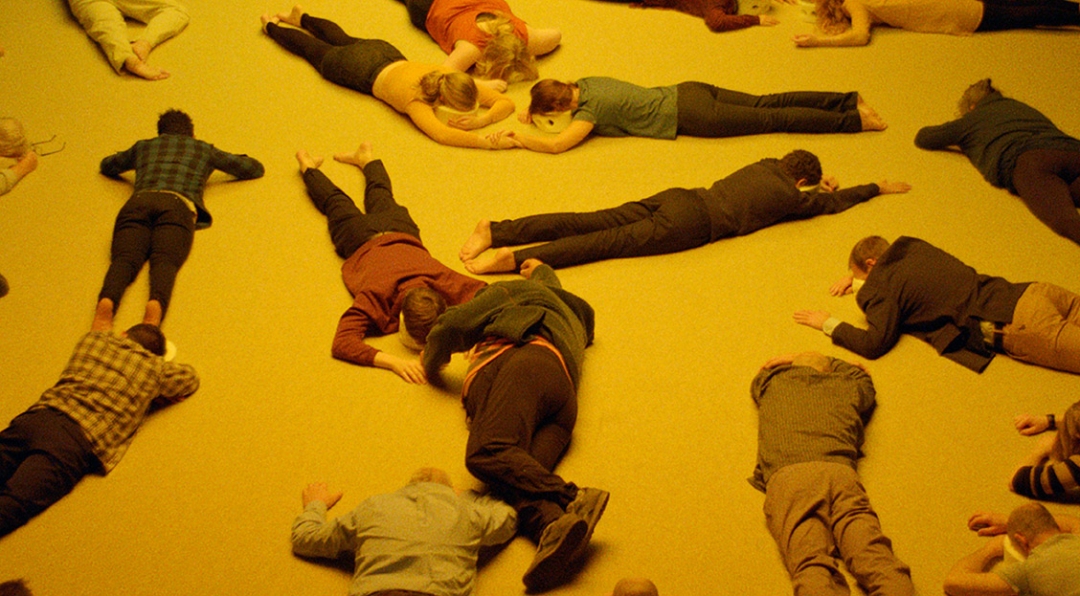A Female Gaze
The Cine por Mujeres Festival is Back

Film Festival Cine por Mujeres (Cinema by Women) returns to Madrid: a date that aims to raise awareness about the work done by all the women in the film industry through screenings and a full educational programme. In its third edition, animation and cinematography also gain prominence.
Madrid will host the third edition of Cine por Mujeres from June 17 to 28, a festival that aims to raise awareness about the work and perspective of women in the five areas of the cinematography value production chain: creation and education, production and reproduction, promotion and marketing, distribution and commercialisation, and consumption and accessibility.
Directed by cultural manager Carlota Álvarez Basso and the current head of Industry at DocsBarcelona Diego Mas Trelles, the Cine por Mujeres Film Festival was launched three years ago with a clear premise: this should be the festival where the audience comes to discover quality cinema that, directed by international authors, has received little to no distribution in Spain. “Our goals include bringing together the attention of the general public, continuing to promote the work of Spanish female directors, and raising awareness of the work and talent of women in other roles within the industry, who in turn must become role models for the younger generation”, explains Álvarez Basso.
In this new edition, this essential date with female auteur cinema presents a programme with more than 60 recent fiction and non-fiction feature films, both national and international, ten of which will coincide in the competitive section. “These films have been carefully selected; in many cases they have received awards at other international festivals, but usually haven’t even distributed in Spain. For some of them, it’ll be the première in Spain,” explains the codirector. The selection criteria are another of the festival’s hallmarks: “We select films that can be of interest to the largest audience possible, whose stories are relevant and are well told. We want to reveal new perspectives and also show the work of female directors endorsed by critics”, she explains.

Still from the documentary film ‘For Sama’, by Waad al-Kateab
NEW SPACES FOR EQUALITY AND NEWS
As well as doubling its duration compared to previous editions, this year the proposal also extends to other areas in the city. “In this edition, the festival grows transversally and also extends the number of venues to 21 with Museo Thyssen-Bornemisza, MK2 Palacio de Hielo, Goethe Institute, Cineteca Madrid, La Morada de Malasaña and Sala Equis. The programme at Casa Árabe will also be shown in Córdoba and, also, in collaboration with the Swedish Embassy and Festival Alcine, four Swedish films will be scheduled at the Teatro Cervantes de Alcalá de Henares, together with the winning films at the Cine por Mujeres Festival”. Other venues include Sala Berlanga, Cine Estudio del Círculo de Bellas Artes, Palacio de la Prensa, Academia de Cine, Casa de América, Institut Français, Espacio Fundación Telefónica, Hotel Iberostar Las Letras Gran Vía, and Filmin.es
Another novelty of this edition is the special place awarded to Polish cinema, the guest country that will show its films at the Academia de Cine through the Focus Polonia programme. But there’s more. “There will also be days dedicated to the animation industry and female cinematographers, in both cases with round tables and master classes,” adds Álvarez Basso. “We will continue to host Virtual Reality and 360º experiences performed by women in the Sala XR of the Espacio Fundación Telefónica”.

Still from the film ‘Ainara’, which will première in Spain within the framework of the Cine por Mujeres Festival
DISCUSSIONS AND CONFERENCES REGARDING ANIMATION AND CINEMATOGRAPHY
Again, education becomes one of the foundations of this festival, where the audience can attend round tables, conferences and talks by female directors, screenwriters, producers, actors, cinematographers, distributors, animation directors, film editors, sound engineers, visual effects specialists, art directors, localisers, scripts and composers. These will take place at the assembly halls of the Comunidad de Madrid, the Instituto de la Mujer and the Espacio Fundación Telefónica, and admission is free.
“For there to be effective change within the sector, awareness must be raised about female role models that can inspire creative women in particular and the public in general. For this, it’s essential for the media, institutions, businesses, education system and society at large to be involved,” the organisation explains. Following these goals, the Cine por Mujeres Festival will bring to Madrid during April a handful of experts who will talk at length about cinematography and animation, the focal points of these meetings.
“For there to be effective change within the sector, awareness must be raised about female role models that can inspire creative women”
Guests at this edition include Elysa Castro, designer of film characters such as in Buñuel in the Labyrinth of the Turtles; Alicia Núñez Puerto, president of MIA (Association of Women in the Animation Industry); Belli Ramírez, production director of Planet 51; Maite Ruiz de Austri, screenwriter and animation film director awarded four Goyas; and Marisa Román, producer of Klaus, awarded the BAFTA Award for Best Animated Film, seven Annie Awards and nominated for an Oscar; Raquel Fernández Núñez, director and Best Female Cinematographer at the Women’s Independent Film Festival in Los Angeles; as well as cinematographers Teresa Medina, Nuria Roldós, Rita Noriega and Almudena Sánchez.
The Hollywood animation film director and producer Becky Bristow will also participate in a conference where she’ll share her experience, career and projects with her Spanish counterparts. As well as Swedish cinematographer Sophie Winqvist, who will première her latest project, Aniara, during the festival.
For the third year running, Fundación Telefónica will host a round table with some of the directors of the films selected for the festival, who will tell the audience their professional experiences. This round table will include Waad al-Kateab, director of the Syrian Oscar-nominated film For Sama; Lucía Garibaldi, director of the Uruguayan film Los Tiburones; Nunzia De Stefano, director of the Italian film Nevia; and Sonja Prosenc, director of the Slovenian film History of Love.
“We understand that changing century-old traditions is complicated and therefore we must redouble our efforts,” adds Carlota Álvarez. “We believe that women are gradually gaining better representation within this industry, thanks to national, regional and sectorial associations, although progress is still slow and must continue undeterred in pursuit of equality”. What better way to continue contributing to this awareness than to exclusively give a voice to all these confident female creators for twelve days.



